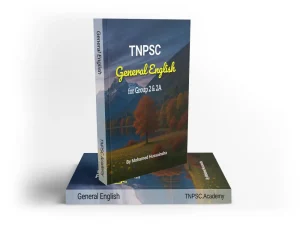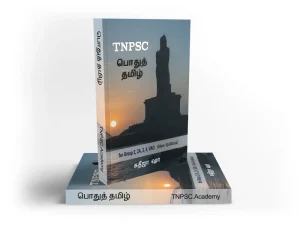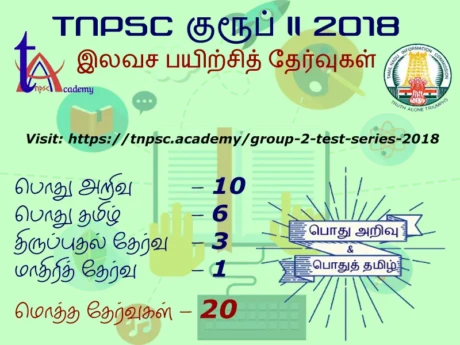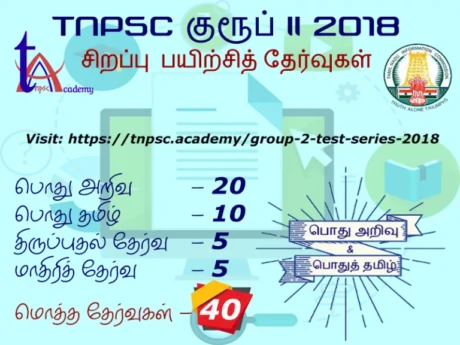TNPSC Books
-
TNPSC General English Book - for Group 2 & 2A
₹1,000.00Original price was: ₹1,000.00.₹850.00Current price is: ₹850.00. -
TNPSC பொதுத் தமிழ் Book - for Group 2, 2A, 3, 4 & VAO
₹1,000.00Original price was: ₹1,000.00.₹850.00Current price is: ₹850.00.
Group 1 Courses
TNPSC Group 1 - Test Series - 2019
4.7₹3,500.00Original price was: ₹3,500.00.₹2,800.00Current price is: ₹2,800.00. 541Group 1 | Postal and Online Test Series | 2022
₹3,200.00Original price was: ₹3,200.00.₹2,800.00Current price is: ₹2,800.00. 88
Group 2 & 2A Courses
TNPSC Group 2 and 2A - Test Series - 2019 - தமிழ்
₹2,400.00Original price was: ₹2,400.00.₹1,800.00Current price is: ₹1,800.00. 175TNPSC Group 2 and 2A - Test Series - 2019
₹2,400.00Original price was: ₹2,400.00.₹1,800.00Current price is: ₹1,800.00. 527














www.tnpsc.academy – TNPSC Current Affairs October 30, 2020 (30/10/2020)
Topic: Economic Policies in India
Depreciation of Rupee
Recently, the Indian rupee depreciated below the 74 levels against the US dollar.
Key facts:
The rupee depreciated by 16 paise to settle against the previous low of August 73.87 against the US dollar. The rupee depreciation is on account of global risk aversion. The investors are preferring a stable US dollar over rupee.
Under risk aversion, an investor prefers lower returns with known risks rather than higher returns with unknown risks. The US dollar is advancing not only against the rupee but also against major currencies due to the surging Covid-19 cases.
The escalating Covid-19 cases in Europe has stoked fears across markets that fresh lockdowns would further hit the already fragile economic recovery.
Appreciation and Depreciation of Currency:
In a floating exchange rate system, market forces (based on demand and supply of a currency) determine the value of a currency.
Currency Appreciation: It is an increase in the value of one currency in relation to another currency.
Currencies appreciate against each other for a variety of reasons, including government policy, interest rates, trade balances and business cycles. Currency appreciation discourages a country’s export activity as its products and services become costlier to buy.
Currency Depreciation: It is a fall in the value of a currency in a floating exchange rate system.
Economic fundamentals, political instability, or risk aversion can cause currency depreciation. Currency depreciation encourages a country’s export activity as its products and services become cheaper to buy.
_
Topic: Places in News
Typhoon Molave: Vietnam
Recently, Vietnam has been hit by one of its biggest storms in two decades – Typhoon Molave.
Vietnam is prone to natural disasters in the rainy season between June and November, with central coastal provinces commonly impacted, but the storms have notably worsened in recent years.
Key facts:
Typhoon is a regionally specific name for a strong “tropical cyclone”.
Tropical cyclones are known as ‘typhoons’ in the northwest pacific ocean, hurricanes in the North Atlantic Ocean, Willy-willies in north-western Australia and Tropical Cyclones in the Indian Ocean Region.
A tropical cyclone is a generic term used by meteorologists to describe a rotating, organized system of clouds and thunderstorms that originates over tropical or subtropical waters and has closed, low-level circulation.
Tropical cyclones rotate counterclockwise in the Northern Hemisphere. These are measured by the Saffir-Simpson Hurricane Wind Scale.
_
Topic: General Administration
Mandatory Jute Bag Packaging
Recently, the Cabinet Committee on Economic Affairs, chaired by the Prime Minister, has approved that 100% of the foodgrains and 20% of the sugar shall be mandatorily packed in jute bags. The decision will give an impetus to the diversification of the jute industry.
Extended Norms:
The decision mandates that initially 10% of the orders of jute bags for packing food grains would be placed through a reverse auction on the GeM portal, which will gradually help in a regime of price discovery.
In a reverse auction, the sellers compete to obtain business from the buyer and prices will typically decrease as the sellers underbid each other.
Price discovery is the process of determining the price of an asset in the marketplace through the interactions of buyers and sellers.
_
Topic: Welfare Oriented Govt Schemes and their Utilities
SERB-POWER Scheme
Recently, the Union Minister for Science and Technology has launched SERB-POWER (Promoting Opportunities for Women in Exploratory Research) Scheme, which has two components of fellowship and research grants.
The Science and Engineering Research Board (SERB), is a statutory body of the Department of Science and Technology (DST), Government of India.
Key facts:
It is a scheme designed exclusively for women scientists to mitigate gender disparity in science and engineering research in various science and technology (S&T) programmes in Indian academic institutions and research and development (R&D) laboratories.
It will serve as a benchmark of recognition in the national scenario and will empower women scientists and cultivate a women-friendly culture and ensure more women in leadership positions in decision-making bodies.
SERB-POWER Fellowship:
Target: Women researchers in 35-55 years of age. Up-to 25 Fellowships per year and not more than 75 at any point in time.
Components of Support:
Fellowship of Rs. 15,000/- per month in addition to regular income.
Research grant of Rs. 10 lakh per annum.
Overhead of Rs. 90,000/- per annum.
Duration: Three years, without the possibility of extension. Once in a career.
SERB-POWER Research Grants:
Funding under Two Categories for up to 50 Power Grants:
Level I: Up to 60 lakhs for three years for applicants from IITs, IISERs, IISc, NITs, Central Universities, and National Labs of Central Government Institutions.
Level II: Up to 30 lakhs for three years for applicants from State Universities/Colleges and Private Academic Institutions.
Regulations: Grants will be regulated through terms of reference conforming to SERB-Core Research Grant (CRG) guidelines.
_
Topic: General Administration, Latest Diary of Events
Operation “Meri Saheli”
Indian Railways has launched “Meri Saheli” initiative for focused action on security of women across all zones with an objective to provide safety and security to lady passengers travelling by trains for their entire journey from starting station to destination station.
An initiative of RPF, the Strategy of the entail’s interaction with lady passengers especially those travelling alone by a team of young lady RPF personnel at the originating station.